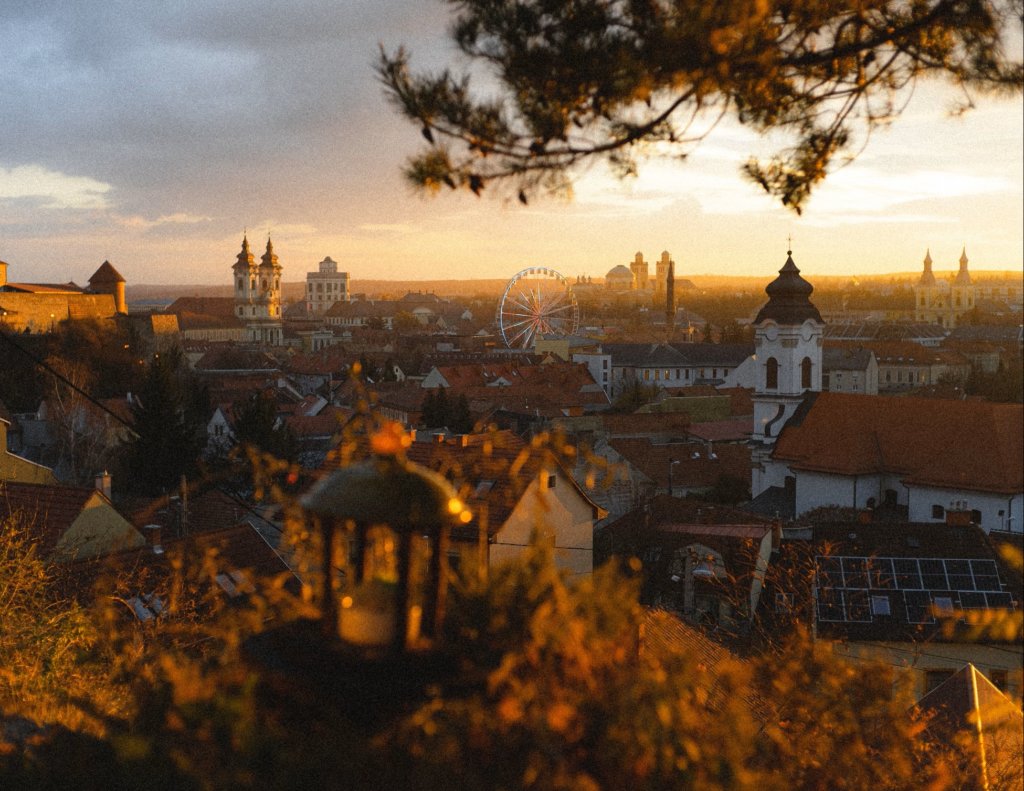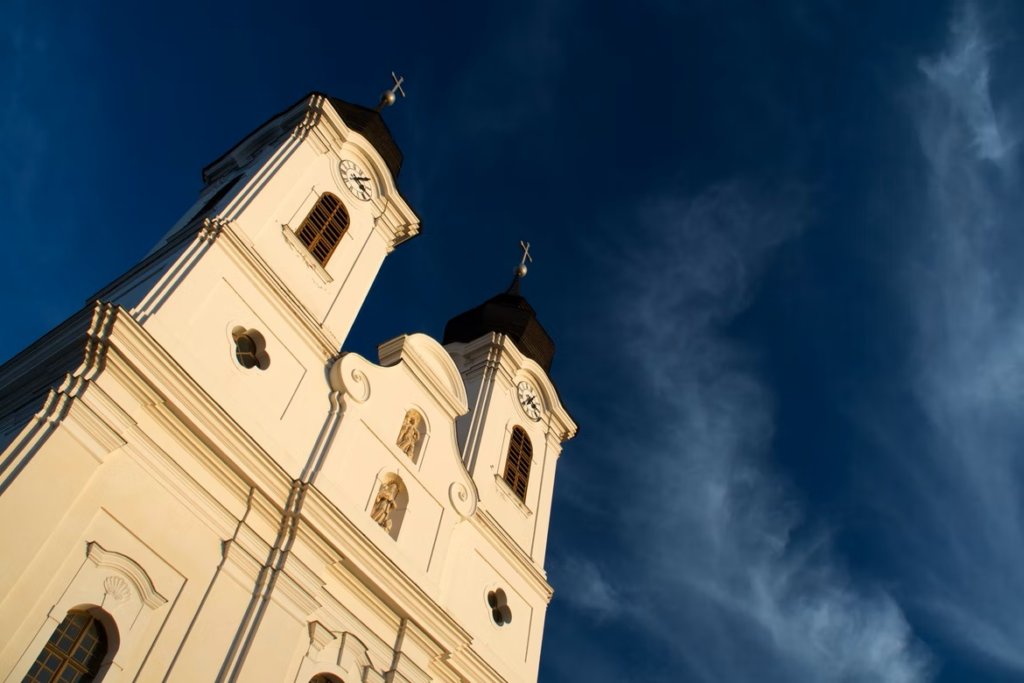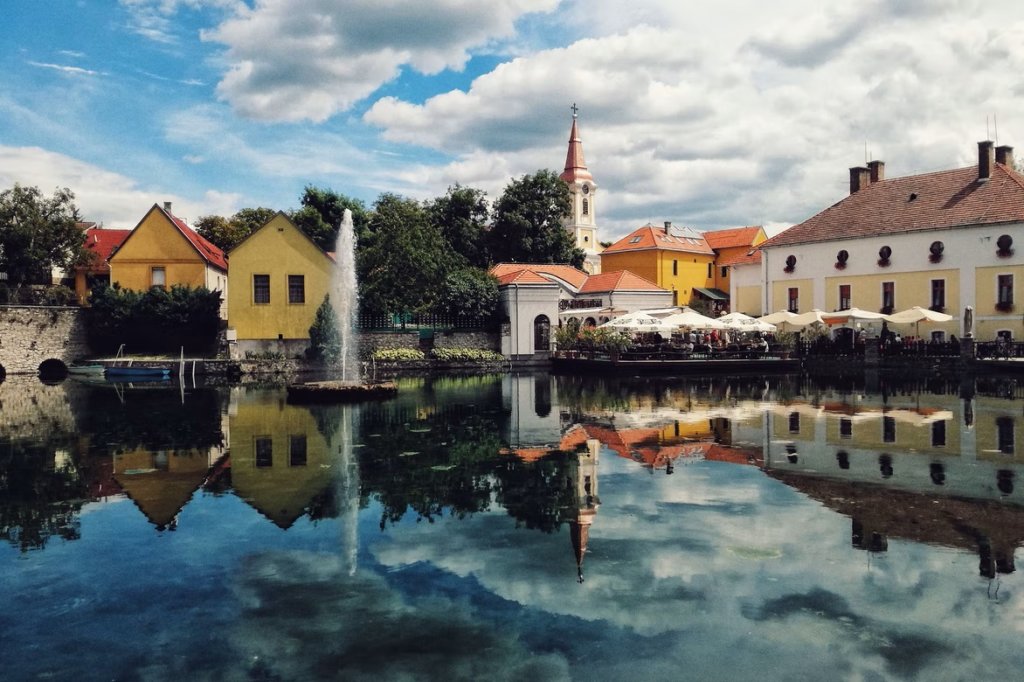- Living & Working abroad
Cultural Differences When Moving Abroad
Relocating abroad is an exciting journey that opens up new opportunities, but it also comes with its own set of...
Read moreLiving & Working abroad
Nestled in the heart of central Europe, Hungary is a country that’s been growing in popularity among internationals over the past few years, cementing itself as a great expat destination for anyone looking to enjoy a relaxed life in a scenic country.
Since joining the European Union in 2004, the country has seen significant improvements in terms of its economy and levels of foreign investment. Combined with a reasonable cost of living and a thriving employment market, it’s easy to see why so many people have chosen to start a new adventure in this beautiful European country.
With a bustling capital city that lures tourists and expats alike, plus a wide range of idyllic lakes, rivers, plains, and mountain ranges to satisfy the aspirations of those who want to enjoy the wonders of mother nature, what are you waiting for? It’s time to make the move over to Hungary.
Table of contents:

It doesn’t matter if you’re still exploring all of the options available to you, or if you’ve got your mind set on making the big move over to Hungary, here’s all the basic information that you could need to know about the country:
Basic information about Hungary:
Did you know?

Any expat moving to Hungary will find themselves very lucky as they will have a fantastic variety of cities that they can choose to call home. Although many expats choose to live in the country’s bustling capital city, Budapest, there are many other options that offer a mix of cultural, historic and entertainment experiences that anyone would enjoy.
Whether you’re looking for a perfect place to study, find a corporate hub to kick-start your career, or a base to travel around Europe, you couldn’t pick a better location than Hungary. With breath-taking views at every turn and plenty of scenic adventures to be had, why wouldn’t you want to settle down in Hungary?
If you haven’t decided where abouts in the country you want to move to, here are some of the main cities that are popular with expats:
Budapest
Did you know that the capital city of Hungary, Budapest, is often ranked very high when it comes to the best cities in the world? It’s easy to see why when there’s stunning architecture, excellent universities, delicious food and some of the best thermal springs in the world right on your doorstep.
Budapest is the epitome of a modern city, with efficient transport links, a buzzing nightlife and plenty of shops, restaurants and bars to keep you busy in your free time. Whether you want to study or start a career in Hungary, Budapest is the economic hub where you can do just that.
Debrecen
Debrecen is the second-largest city in the country, making it one of the most popular expat locations in Hungary. Located to the east of Budapest, it’s one of the central cultural hubs of the country and is home to seriously impressive architecture that will take your breath away.
The city is known for its youthful vibe as it’s home to two of the top universities in the country; University of Debrecen and Debrecen Reformed Theological University. If you want to party the night away and meet international students from all over the world, Debrecen may be the perfect spot for you.
Eger
If you enjoy a slower pace of life, perhaps looking to settle down with your family or retire in tranquility, Eger is a beautiful location to try out. With historic castles, extravagant architecture and plenty of thermal baths to unwind in, we guarantee that you’ll be feeling chilled out in no time if you move here.
Eger is also well-known in the country for it’s excellent culinary reputation. High-quality wines, famous restaurants and stylish bars come in abundance in this popular tourist retreat.
Szeged
Who wouldn’t want to live somewhere that’s known as ‘the city of sunshine’?! Szeged is the third-largest city in Hungary and is known for being extremely friendly and vibrant thanks to the large and youthful population–and of course, also known for being one of the sunniest spots in the country.
It’s another of Hungary’s primary student centres, with celebrated universities that draw in students from across the globe like University of Szeged and Eötvös József College. If you want to find somewhere to enjoy drinks and food with friends before a night out, Szeged is the place!

Home ownership rates in general are pretty high in Hungary, with around 91% of the population owning their homes. However, in the major cities it’s still very common to rent apartments and move around until you find the perfect place to settle down.
We always recommend that expats start with renting, this way you can try out different cities before making a permanent investment.
In Hungary, rental prices are very low when compared to some of the other major European cities, but this balances out with the lower-than-average salaries you can expect. On average, you’d be looking at paying around €275 a month in rent for a one-bedroom apartment, but you could be paying more or less depending where you choose to live.
The most expensive city in Hungary to live in is Budapest, so if you choose to settle here you should expect to pay more in rent, around €445 a month for a one-bedroom apartment in the city centre.
Communist-era, community-style housing is the norm in many of the main Hungarian cities. These are large buildings made up of around 5 flats per floor that surround an inner courtyard. As you move out of the city centers, you’ll start to see more houses and larger apartments but the average size apartment in the cities is around 77 m2.
The majority of landlords in Hungary will only let you sign leases for a minimum of one year, however, you may be able to agree to a six-month contract if you’re lucky.
In the cities, the housing market moves quite quickly so you normally have to make a decision on an apartment pretty fast if you want to get your favorite. Most people prefer to house-hunt in Hungary where they can work with a housing agent as, unlike other countries, you don’t have to pay the agents–they get their commission from the owner of the apartment.
Expats can also look for apartments online but should beware of scams that target internationals. As a rule, if something seems too good to be true–it probably is!
Like most countries, when signing a lease in Hungary, you’ll be required to pay a deposit fee (equivalent to one month’s rent) to secure your apartment which you’ll get back at the end of your tenancy. Some landlords will also require you to pay your first month of rent in advance.
Your monthly rent will normally not cover the cost of utilities, unless it’s specified in your contract, so make sure to budget around €115 a month for things like water, electricity, heating and internet.
If you like to unwind and go on adventures in your spare time, we couldn’t think of a better place to go than Hungary. Despite being one of the smaller countries in Europe, there are plenty of things to keep you occupied.
Lovers of the outdoors will be pleased to know that the country is home to 8 beautiful UNESCO World Heritage Sites that are well worth the trips to visit. Along with break-taking scenic driving routes, idyllic hiking paths and the iconic Hungarian thermal spas dotted around the country, there’s enough for anyone to enjoy.

Expats will be able to embrace the unique Hungarian culture wherever they are in the country, from the rich historical landmarks to the local restaurants serving up delicious national dishes, you have the pick of the bunch when you’re making plans with friends.
Life is just as exciting in the main cities as it is in the countryside, with plenty of festivals and events taking place throughout the year that we’d recommend everyone attend.
Here are some of the most popular Hungarian festivals that you seriously shouldn’t miss:
Foodies are going to have a great time in Hungary as the country is known for their rich and heart-warming cuisine that tourists, expats and locals simply can’t get enough of. National dishes like goulash are a staple on any restaurant menu but there are plenty of other dishes that are just as famous–and just as delicious.
The majority of Hungarian foods are based on meats, vegetables, bread and dairy products. Here are some of our favorites:
If you’re relocating to Hungary, you’ll notice a big difference in the cost of living. The cost of living in Hungary is relatively low compared to other European countries, both when it comes to the cost of renting, going out and other day-to-day costs.
The main cities like Budapest and Debrecen are the most expensive places to live, but regardless of where you choose to settle down, you’ll never have to worry about having to spend too much to live.
In Hungary, eating out is extremely cheap. For a meal in an inexpensive restaurant, you can expect to pay 10,000 Ft which is equivalent to €5.50. Going out for a drink with friends is also equally as affordable, with beers costing 550 Ft (around €1.50). If coffee is your thing, you can spend as much time at the coffee shops and cafes as you like as a cup of coffee will only cost you 460 Ft which is around €1.20.
When you’re doing your weekly grocery shop in Hungary, it’s easy to shop on a budget. Produce in Hungary is very inexpensive, but when you start adding things like meat and alcohol to your list, things could start getting a little pricey.
Here’s an example of some common grocery shop items and how much they would cost you on average in a Hungarian supermarket.
| Item | Hungarian Ft | Euro |
| Milk (1 litre) | 247 Ft | €0.67 |
| Loaf of bread | 245 Ft | €0.66 |
| 1kg chicken fillets | 1,500 Ft | €4.07 |
| 1kg apples | 470 Ft | €1.28 |
| Bottle of wine | 1,400 Ft | €3.80 |
The average cost of living for a single person in Hungary is around €465 a month, excluding the cost of rent. This is more than 46% lower than the costs you would expect to be paying to live in a Swedish city like Stockholm.
Like most European countries, the transport network in Hungary is quite advanced–especially in the major cities. It’s easy to get around the cities using a range of public transport options like buses, metros and trolleybuses.
In Hungary, public transport usually runs between the hours of 5.30am and and 9.00pm in most areas, but between 4.30am and midnight in Budapest. The further you go out of the main cities, the less developed the transport links will become, but you should never find it difficult to get around–no matter where you are in the country.


Transport tickets for local services can be purchased at newsstands and ticket windows, and must be validated once you get on board your service. These tickets typically cost around 300 Ft (€0.80). If you aren’t able to show a ticket when inspectors ask, you will be fined on the spot.
If you’re living in Budapest, your travel options are a bit more extensive as this is the only Hungarian city that has a four-line metro service to help you get around quickly and efficiently. Like Szeged and Debrecen, Budapest also has a tram system with five lines.
After exploring Hungary, you may want to explore some more of the nearby countries in Europe, which is easy to do thanks to the 6 airports across the country that have excellent links with Europe and beyond.
If public transport isn’t your thing, you could also look into getting a car for your time in Hungary. Cars in Hungary are affordable and you can use your own domestic driver’s license to get you from A to B. However, your domestic driving license will only work for a year, after that you’ll be required to get yourself a local Hungarian driver’s license.
Over 180,000 expats now call Hungary home, so you’re sure to find plenty of internationals just like you. Most of the larger cities, especially Budapest, have a thriving expat community so the country will quickly start to feel like home.
If you want to meet some of your fellow expats, the best way to do this is to look for some expat groups that organize meetings, events and trips. It’s super easy to find these groups, simply search for expat groups in Hungary (or the city you’re in) on Facebook and plenty of options should come up.
Although we all want to meet up with people from our home countries to help us feel more settled, we also highly recommend putting yourself out there and becoming friends with some of the locals. In the cities, the majority of people will speak English, so there’s no reason to not get talking to them! After all, who’s going to be able to show you the real Hungary better than a Hungarian native!

If you’re going to be living in Hungary, it’s a good idea to start learning the language to make your day-to-day life a little easier. Hungarian is the official language of Hungary and is also recognised as a minority language in Romania, Serbia, Croatia, Slovakia, Slovenia and Austria.
It can be a little hard to learn at first–like with any language–but the more you practice, the easier it will become.
We recommend picking up some basic phrases before you move to Hungary to get started, then once you arrive you can immerse yourself in the Hungarian culture–you’ll be surprised at how easily you pick up new phrases!
Most Hungarians in the main cities will have a good level of English, which will make it easier to converse, but once you start going to more rural locations, the number of English speakers will decrease significantly.
Here are some of the most common words and phrases that we think you’ll need when living in Hungary:
Since the country joined the EU in 2004, the job market has improved quite a bit which has made it a popular destination for anyone looking for professional opportunities. The county’s economy has been fairly stable and many international companies are starting to open offices which has created a lot of opportunities for people with multilingual skills and foreign experience.
Some of the main industries in Hungary that could be of interest to expats include:

If you’re planning to work when you move to Hungary, you can look forward to embracing their relaxed and open ways of working. The typical working week is 40 hours a week, typically 8 hours a day for five days and you’re eligible to 20 days of annual leave.
Most offices in Hungary will be open-plan, with employees sharing large tables, rather than having your own desk to work at. This is great for people who love to talk with their co-workers and work in a collaborative way.
You can also get away with dressing quite informally at your Hungarian workplace, trousers and a nice shirt will be fine in most offices–but of course this will depend on where you work!
Hungarians place a lot of importance on creating good relationships with the people they work with, with socializing being a big part of the work day.
Like in other countries, most jobs in Hungary will involve a probation period of up to 6 months. Within this time, you or your employer can end the job agreement without notice.
If you want to leave your job after these 6 months, you’ll have to hand in a notice and work a notice period which would have been specified in your contract. Most notice periods will be between 1-3 months.
In Hungary they have a set national minimum wage, and it’s illegal for any company to pay you less. The minimum wage in Hungary is lower than in nearby countries like Czech Republic and Poland at €487 a month. However, remember that expats receive a more attractive salary, and in many cases, bonuses are also included!
All income earned in Hungary is taxed at a flat rate of 15%. This income earned is also subject to various contributions to social security such as pension and health care.
Despite the salaries being lower than some of Hungary’s neighboring countries, it balances out with an affordable cost of living, making the country a very cost-efficient place to live and work. Most expats are able to save some money while they’re in the country too!
If you’re just moving to Hungary as a professional, chances are you won’t know many other people so it’s a good idea to start networking as soon as you can. Luckily for you, the business landscape in Hungary is thriving, especially in the larger cities, so there will be lots of people just like you.
There are lots of events held throughout the year that anyone is allowed to attend, some are hosted through Meetup where you can search for events in your specific area or industry. You can also look for events and networking sessions on Google by searching for things like "Networking events in Budapest" or "Meet marketing professionals in Hungary". You can even look for groups on Facebook that connect business professionals in the country.


Hungary has been part of the European Union since 2004, which means it’s easy to relocate here if you’re from another EU country.
All you need to do is apply for a long-term residence permit which will allow you to stay in the country for more than 90 days and is valid for 5 years.
To apply for this permit, just visit the local Migrations office in your area and submit the following documents:
The office will also ask you to fill in an application form so the authorities can assess your application. You should normally hear back within a few weeks, but don’t panic if you have to wait a while, these processes are always subject to delays.
The National Health Service in Hungary is available to all residents and foreigners. If you’re working for a Hungarian company, you’ll already be paying contributions that go towards your healthcare which will give you access to first-rate medical care.
Although the country is generally known for having a high level of medical care, there are discrepancies between the different areas. The east and south of the country are often known to be underfunded and lacking in resources in comparison to the north and western areas.
The public healthcare on offer to residents ranges from fair to very good, with many good hospitals, doctors and testing facilities providing medical care.
Public healthcare covers a range of treatments, diagnostics, medication and rehabilitation services you may need while living in the country. You can also have the right to choose your General Practitioner and dentist.
The private healthcare system is also thriving with some of the best doctors in the country. Many expats will choose to use private healthcare to gain access to the best doctors, shorter waiting times and more modern, comfortable facilities that you can’t get on a public health insurance plan.
Any foreigner living in Hungary is eligible to open up a Hungarian bank account during their stay in the country.
If you want to open your own bank account, the process is relatively straightforward. To get signed up, all you’ll need to do is go into the local branch of your chosen bank and ask to open an account.
Some of the most popular banks in Hungary are:
Once you’ve decided on the bank and you’ve found your local branch, remember to bring the following documents with you:
The bank account will be open straight away, but your bank card will usually be delivered to your home address within a week.
Known as the heart of Central Europe, Hungary is a hidden gem that’s slowly but surely gaining popularity with tourists and expats alike. With beautiful landscapes and breathtaking architecture across the country’s metropolitan and rural spots, there’s an endless amount of opportunities to have an adventure in stunning Hungary.
Not only is the country extremely affordable when compared to other European destinations, there’s also plenty of clubs, restaurants and festivals throughout the year for the young and old to enjoy. Whether you want to spend your time in Hungary living it up in the nightclubs, or relaxing with a glass of wine in the countryside, the country has a lot to offer all expats.
Boosting your career in the country couldn’t be easier, with a thriving job market that is always looking for people with multilingual and international experience. But it’s not all work and no play. Hungary offers a blend of nature, history and culture that is embedded into every city and area of the country. If you want to soak up history and immerse yourself in a vibrant culture, there’s no better place to go than this Central European country.
Here are our top 10 reasons why you should consider the move to Hungary:
So if the thought of living and working in Hungary attracts you, why not check out some of the job vacancies that we offer in the country here at Workwide Recruit!

Relocating abroad is an exciting journey that opens up new opportunities, but it also comes with its own set of...
Read moreThere’s great comfort in connecting with other expats who can share their experiences from the destination you’re considering because every...
Read more
